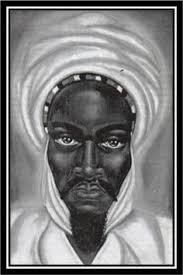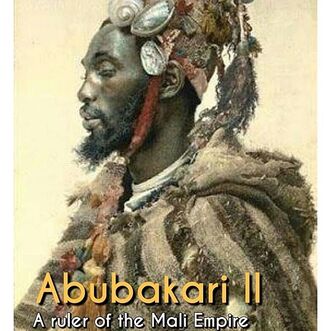|
During the 14th century, the Kingdom of Mali was ruled by Mansa Abu Bakr II the ninth Mansa of Mali; at the time the Kingdom of Mali was one of if not the largest kingdoms on the African continent. Details about the life of Abu Bakr II are unknown except for accounts from the Arab historian Al-Umari. Al-Umari learned details about Abu Bakr’s life during a conversation with Abu Bakr’s successor Mansa Musa. The historian learned that Abu Bakr was interested in learning what was on the other side of the Atlantic Ocean and confident he could complete the mission. According to Al-Umari’s account as told to him by Mansa Musa, Abu Bakr prepared 200 boats to sail across the Atlantic to learn about what existed on the other side on the ocean. The boats were stocked with gold, water, food, and enough essential items to last quite a few years. Abu Bakr instructed his Admiral to sail the Atlantic and to not return until he found the far side of the ocean, or unless they exhausted all of their resources. Several years passed before any of the boats from the voyage returned, only one boat returned, when questioned, the captain of the boat explained how many of the boats were lost in the ocean due to violently flowing currents. The captain explained how he narrowly escaped being drowned by a massive whirlpool and was able to sail home. Upon hearing this news, Abu Bakr loaded 2,000 ships, two thousand for his men and one thousand for supplies, then set sail to explore the far side of the Atlantic Ocean. Mansa Musa was placed in charge of the Kingdom of Mali until Abu Bakr returned, but he never returned, so to this day his death remains a mystery. According to African scholars and researchers, specifically researcher Gaoussou Diswara and historian Ivan Van Sertima, it is purposed that maybe Abu Bakr or other African explorers reached the Caribbean and the Central or South American continents. There are accounts of indigenous Americans stating that black people sailed to their islands with gold. According to accounts by Christopher Columbus and Bartolome de las Casas an abundance of West African spears, gold, and many other artifacts existed. Several white scholars who support the argument that Europeans reached the Americas first disagree that Africans sailed to the Americas. Remember that European historians have a history of rewriting history to make themselves seem superior, especially when it comes to their relations with African people. We will celebrate pioneering explorers like Abu Bakr and the many others who preceded him and followed him. To the great Malian ruler and explorer Mansa Abu Bakr II, we proudly stand on your shoulders. J.A. Ward Click here to learn more about the On the Shoulders of Giants book series!! https://www.ancient-origins.net/history-famous-people/legend-how-mansa-abu-bakr-ii-mali-gave-throne-explore-atlantic-ocean-005392
https://en.wikipedia.org/wiki/Abu_Bakr_II https://face2faceafrica.com/article/way-before-columbus-ancient-malians-sailed-to-the-americas-in-1311
6 Comments
Reeciecre
10/29/2021 05:09:00 am
DNA of Americans who are descendants of enslaved people from Africa and the Americas are proof of the successful voyages of Africans to the Americas before Columbus. My 54th generation (640 ad) ancestors were inhabitants of Barbados (Tianos) and mixed with Mende of Sierra Leone in the 23rd generation (1395-1455 ad). Subsequently after the arrival of Columbus my generational DNA gets more diverse...leaving me a gumbo of 44% European, 43.1% African, 12.8% West Indies.
Reply
1221444
2/5/2023 03:30:58 pm
Like Wise. I’d like to chat with u about just this exactly. I have Barbados as well, with Sierra Leone Mende 50+ generation.
Reply
Daylon
3/31/2023 10:36:22 pm
I too am Mende and am currently researching. Please share any info and I will do the same?!?
MARTITO
2/7/2022 09:33:13 am
Intriguing indeed! I was taught Mansa Musa was the one who traveled the atlantic and that abu bakr was His Sucessor. I think that this is more Accurate.
Reply
Leave a Reply. |
Details
Categories
All
Click Here to join our mailing list
|
Contact Us: |
Connect With Us |
Site powered by PIT Web Design



 RSS Feed
RSS Feed



